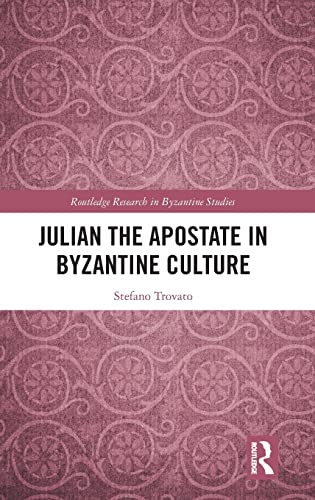

Most ebook files are in PDF format, so you can easily read them using various software such as Foxit Reader or directly on the Google Chrome browser.
Some ebook files are released by publishers in other formats such as .awz, .mobi, .epub, .fb2, etc. You may need to install specific software to read these formats on mobile/PC, such as Calibre.
Please read the tutorial at this link. https://ebooknice.com/page/post?id=faq
We offer FREE conversion to the popular formats you request; however, this may take some time. Therefore, right after payment, please email us, and we will try to provide the service as quickly as possible.
For some exceptional file formats or broken links (if any), please refrain from opening any disputes. Instead, email us first, and we will try to assist within a maximum of 6 hours.
EbookNice Team

Status:
Available0.0
0 reviewsJulian died young, and his attempt to reinstate paganism was a failure, but, paradoxically, his brief and unsuccessful policy resonated for centuries. This book analyses Julian from the perspectives of Byzantine Culture. The history of his posthumous fortune reveals differences in cultural perspectives and it is most intriguing with regard to the Eastern Roman empire which survived for almost a millennium after the fall of the Western empire.
Byzantine culture viewed Julian in multiple ways, first as the legitimate emperor of the enduring Roman empire; second as the author of works written in Greek and handed down for generations in the language that scholars, the Church, and the state administration all continued to use; and third as an open enemy of Christianity.
Julian the Apostate in Byzantine Culture will appeal to researchers and students alike in Byzantine perspectives on Julian, Greco-Roman Paganism, and the Later Roman Empire, as well as those interested in Byzantine Historiography"-- Provided by publisher.